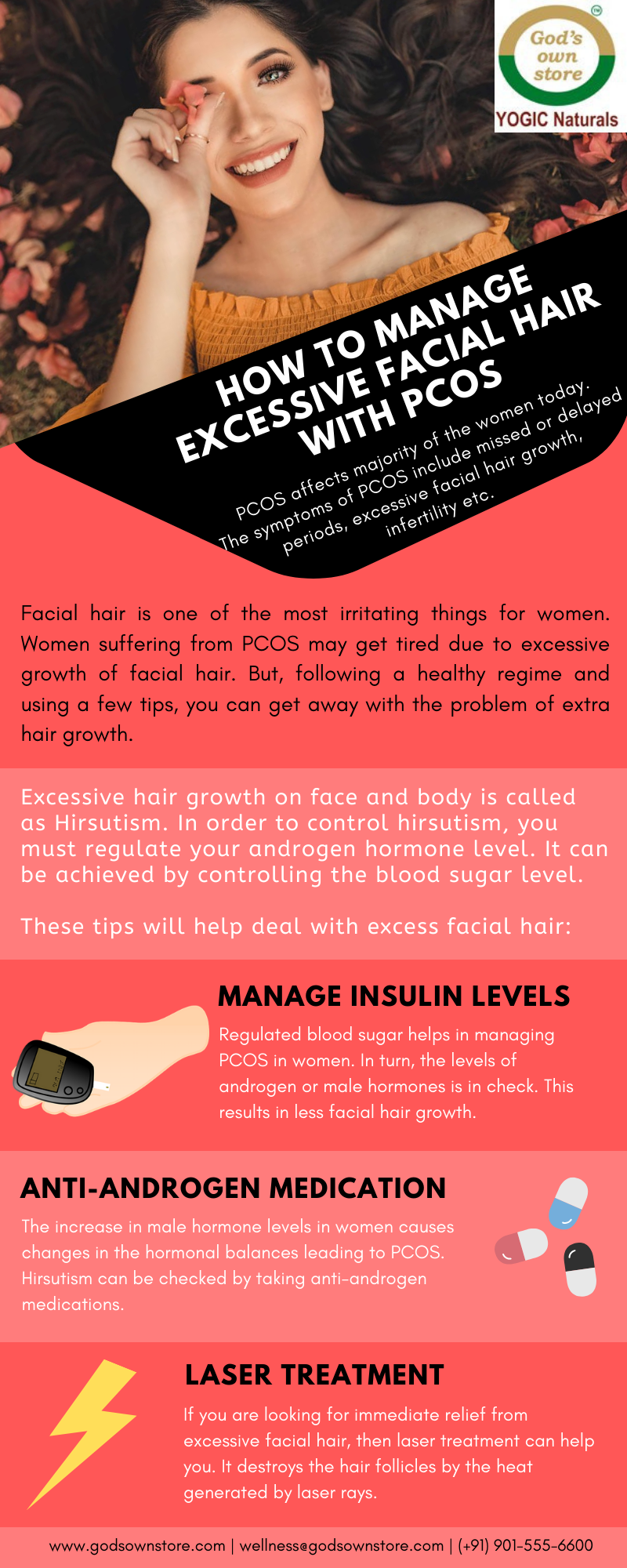Currently Empty: ₹0

HOW TO MANAGE EXCESSIVE FACIAL HAIR IN WOMEN SUFFERING FROM PCOD
One of the most commonly found complications in women today is polycystic ovarian disease, or PCOD. It is a medical condition that affects 7 to 10 percent of women and can start during adolescence. It is said to be a constellation of symptoms rather than a disease and the cause or causes is not completely understood. Though the exact symptoms of the abnormality have not been defined, yet ob-gyn specialists say that women suffering from PCOD may develop facial hair and cysts in their ovaries.
During a normal menstrual cycle, the brain makes the hormone GnRH which is released into a special circulation going to the pituitary gland. This pituitary gland then releases two hormones FSH and LH which travel in the blood stream to the ovary causing the ovary to produce an egg. The egg then travels to the uterus and if fertilized, and stays in the uterus. But if not fertilized, the uterus sheds off its wall and the woman gets a normal menstrual period.
What happens in polycystic ovarian disease?
Doctors say that one of the primary abnormalities in polycystic ovary disease is the abnormal release of GnRH. Instead of being released in regular cyclic manner, it is released rapidly throughout the day. This disrupts the release of FSH and LH in a way that LH is increased but FSH is decreased into the peripheral circulation. In response to this the ovary makes more male hormones (testosterone or androgens) and ovulation is inhibited.
Symptoms of PCOD:
Women may notice irregular periods, severe acne, obesity, development of coarse hair on many parts of the body. Excessive hair growth may grow in areas like face, neck, back, chest and buttocks. In order to control excessive hair growth due to PCOD, you must put a check on your diet first. Change in lifestyle also plays significant role in controlling the complication.
It is said, “You are what you eat”. In order to deal with excessive hair, you need not do anything extremely drastic. Just strive to achieve hormonal balance in order to manage PCOD.
- Have fibrous food, dates, broccoli, spinach, blue berries, garlic, cinnamon, nuts, avocados etc.
- Avoid processed food, food with added sugars (not more than 5gms), saturated fats (no more than 13gms per day), zero amount of trans fats, white flour, dairy items like processed cheese etc.
- Implementing supplements like vitex chasteberry can be a booster as these supplements are anti-angiogenic and interact with medications. A variety of supplements are available in the market but before starting them, do consult your doctor to be on safe side.
- Spearmint tea has significant anti-androgen effects in PCOD (polycystic ovary disease). Experts advise to drink it twice a day either hot or iced tea, both are good to go.
Diet is very crucial in balancing the hormones. You might not notice the excessive hair growth going down until a year of being very cautious with what you’re eating. It does take a while for hormones to balance if you choose the natural way of going about it.
Modern medicine currently does not have a cure for PCOS & the side effects of some of the medication is quite extreme in cases. There are some natural/herbal/Ayurvedic remedies that have been known to yield positive results. It is important to check the scientific validation behind these products. Alternative healing processes are definitely worth trying out and following a healthy diet has a positive impact on managing PCOS.
Infographic:How to manage excessive facial hair with PCOS

